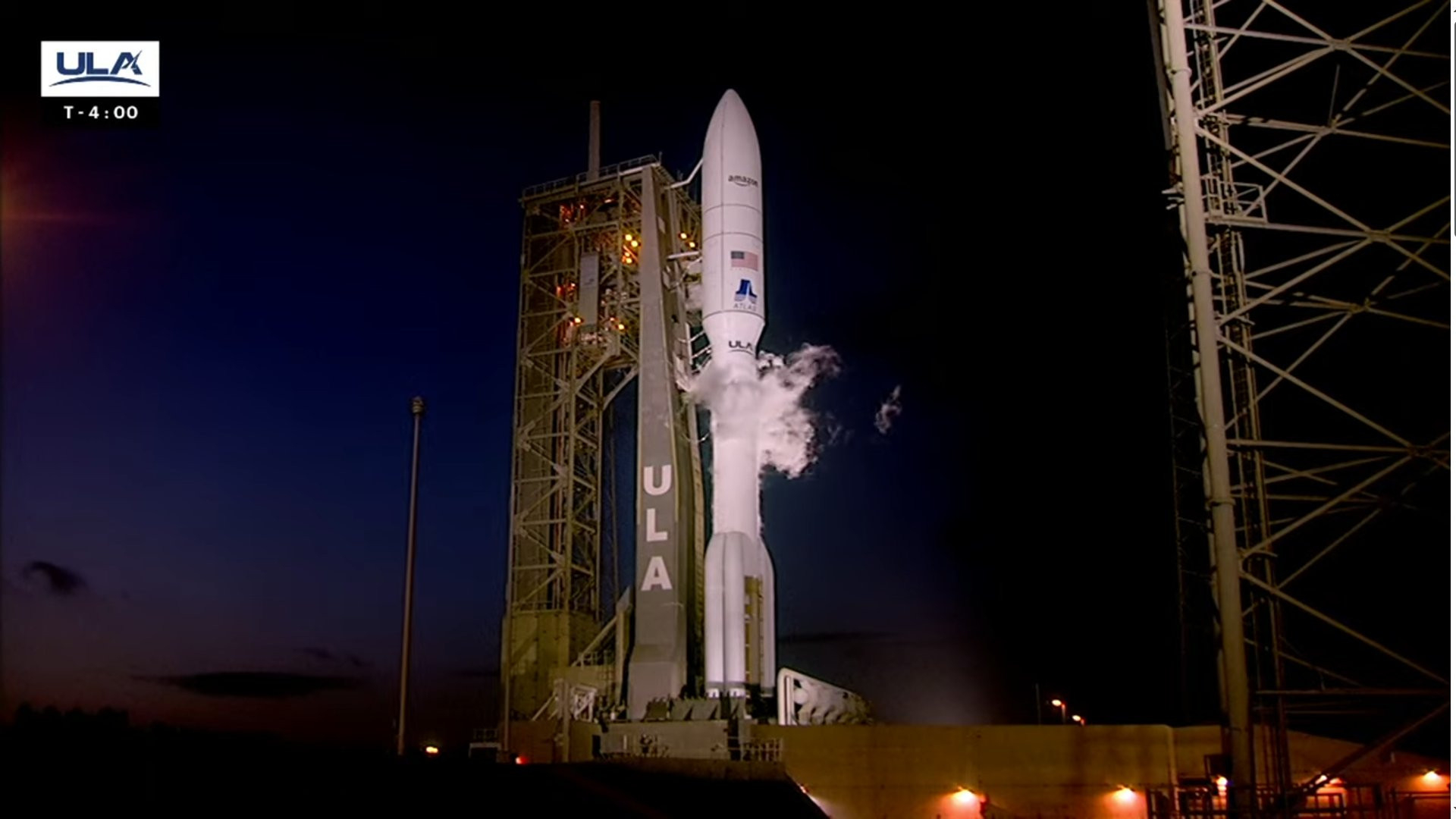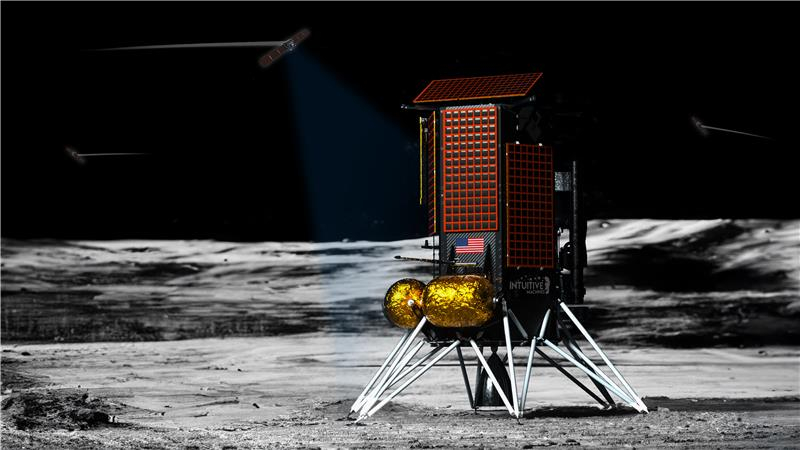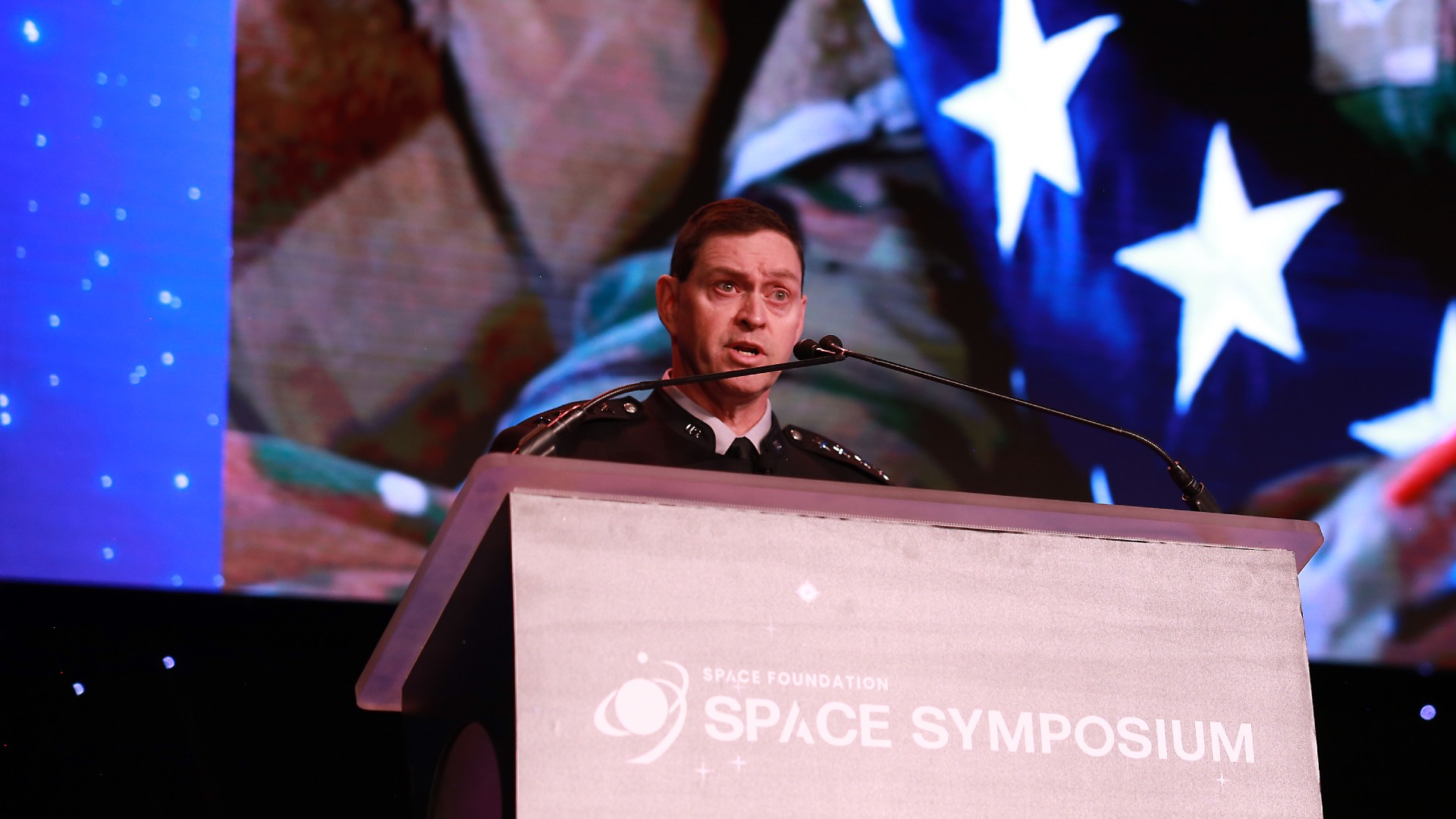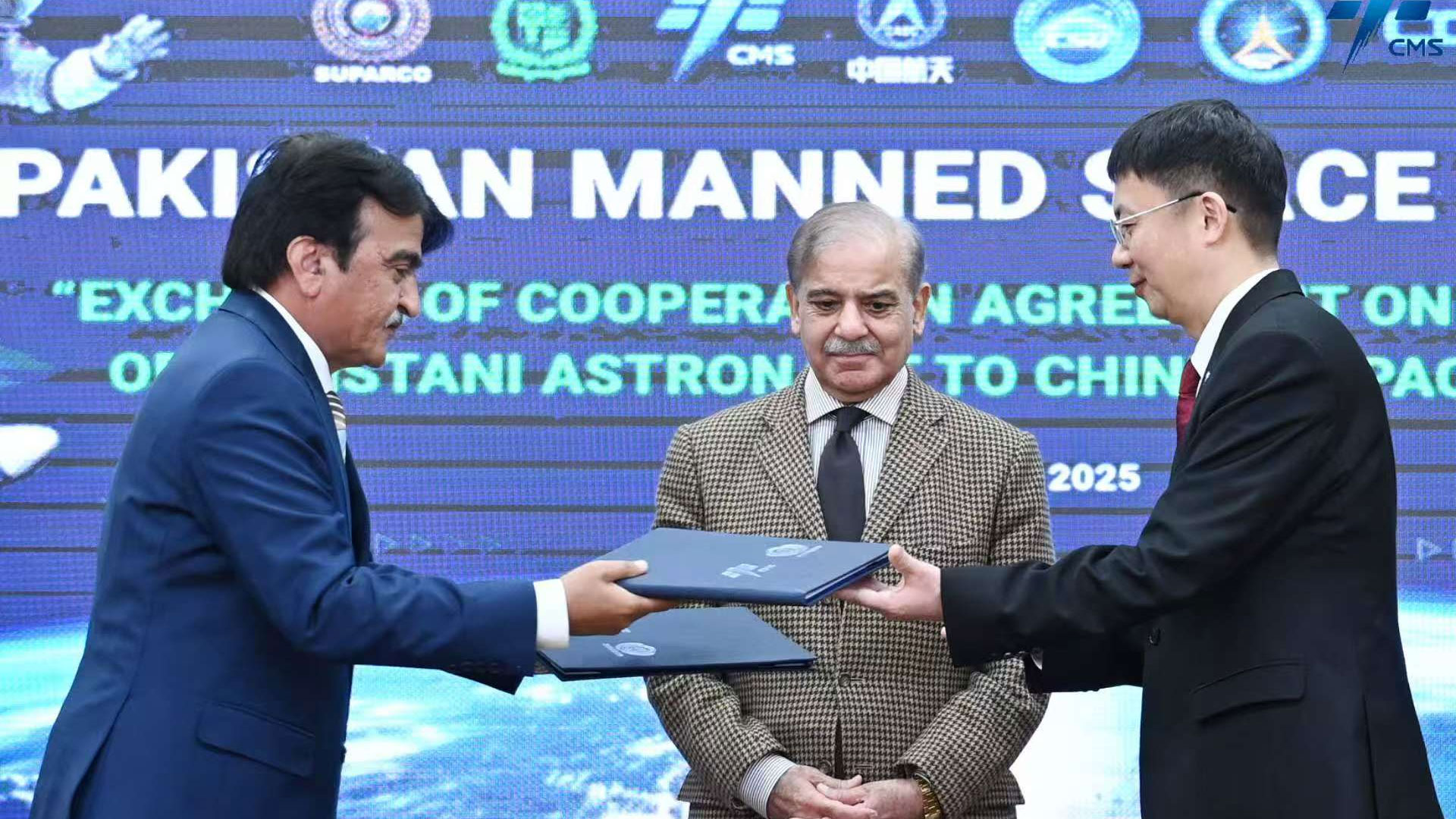
Ready, SETI, go: Is there a race to contact E.T.?
If so, China may be in the lead.

Researchers using China's new Five-hundred-meter Aperture Spherical radio Telescope (FAST), the largest single-dish scope in the world, are piecing together a technological strategy to carry out a major and sweeping search for extraterrestrial intelligence (SETI).
What if China someday announces that this hunt has been successful? How would such a claim be verified, and what might the consequences be? And could an unofficial international SETI race already be underway?
Space.com asked several SETI authorities to flesh out the implications of China being the first nation to get a ping from ET.
Related: 13 ways to hunt intelligent aliens
Leap forward
FAST is a leap forward for Asia's presence in radio astronomy and possibly in SETI. Indeed, the Chinese now can be major players in SETI if the nation chooses to be, said Michael Michaud, author of the book "Contact with Alien Civilizations: Our Hopes and Fears about Encountering Extraterrestrials" (Copernicus/Springer, 2007).
"Most scientific fields had been dominated by Americans and other Westerners since the end of World War II. China is now catching up with, and in some areas surpassing, Western achievements," Michaud told Space.com. "Already, China has the resources to become the world's leading nation in several fields of scientific research and technology development."
China has a vast reservoir of scientific and engineering talent, Michaud said. The nation also has an authoritarian government that can command resources at will, without facing significant political opposition. Above all is the authority of the Chinese Communist Party, whose leaders dominate decision-making. The FAST telescope would not exist without the Party's approval, he said.
Get the Space.com Newsletter
Breaking space news, the latest updates on rocket launches, skywatching events and more!

Messaging signals
"The FAST telescope may give China a powerful means of transmitting radio signals that might be detected by an extraterrestrial civilization," Michaud said.
In his 2008 novel "The Three-Body Problem," award-winning Chinese science-fiction writer Cixin Liu painted a dark picture of what such messaging extraterrestrial intelligence (METI) signals could mean for humankind, Michaud said.
"It is not yet clear whether this view is widely shared in China. Any serious effort to transmit powerful signals with the FAST radio telescope is likely to require the Chinese political leadership's approval," Michaud said.
Related: SETI: All about the search for extraterrestrial intelligence (infographic)
Space race redo?
"Anyone hoping for a redo of the 1960s 'space race' between the Soviet Union and the United States in today's international SETI scene is going to be disappointed. In SETI, international cooperation wins over competition," said Douglas Vakoch, president of METI International in San Francisco.
Ultimately, the key to confirming first contact, Vakoch said, lies in a geographically separated collection of dishes with sophisticated signal-processing capabilities for detecting transmissions from advanced civilizations.
"At times like this, when we see the coronavirus being relabeled the 'Chinese virus' for political impact, we need to avoid attributing clandestine intentions to SETI scientists of any nationality," Vakoch said. "Astronomers from any country would take a special pride in being the first scientists to detect intelligent aliens, but astronomers who insist on going it alone without support from colleagues in other countries risk losing out on confirming their discovery."

Contacting colleagues
SETI scientists who are tracking promising signals coming from the vicinity of another star want to keep the observations going even after the star sets at their observatory, Vakoch pointed out.
"That means contacting colleagues who can start observing when the star rises at their location. In the best-case scenario, observatories around the world are tracking the signals 24/7, ideally from multiple sites at the same time," he said.
Vakoch said that, as China implements its Commensal Radio Astronomy FAST Survey (CRAFTS), the nation will be on the lookout for such widely differing phenomena as fast radio bursts, pulsars and — with beefed-up signal processing capabilities — distinctly artificial signals from extraterrestrial intelligence.
"Unless you can observe the same signals coming from space at two locations on Earth, using independent observatories, it's hard to rule out the signal being caused by a technical glitch occurring at a single site," Vakoch said. "And an interesting signal that appears without warning during a survey for transients could just as quickly disappear, so the pressure is on to pinpoint its source and determine whether it has the characteristics of a signal from an alien civilization."
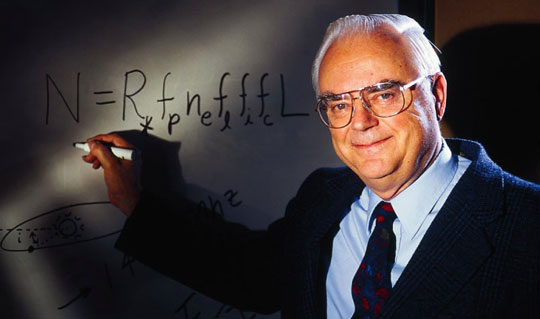
Scenario for secrecy
So, if SETI scientists detect a good candidate signal with China's FAST, to confirm the signal they may need to wait until it can be picked up by the Parkes radio telescope in Australia, or the Green Bank Observatory in the United States, Vakoch said.
The most likely scenario for secrecy following detection of a putative signal, Vakoch said, is in a targeted search.
In targeted searches, a telescope points at one star for a few minutes, and if it finds no telltale signs of ET, it moves to the next target star on its list. So if aliens are transmitting in Earth's direction at the exact time we just so happened to be scanning their star system for radio signals, we probably didn't just get lucky, Vakoch said.
"If we found their signal in the first place, it's likely going to stay on constantly, or at least repeat often enough to be found in the first place," Vakoch said. "So SETI scientists who are willing to gamble on being able to observe the signal again the next day might simply wait to try to detect the signal again on their own."
Extended affair
"From my point of view, there is no SETI race, official or unofficial, just two nations trying to answer one of the greatest scientific questions of all time," said Steven Dick, author of "Astrobiology, Discovery, and Societal Impact" (Cambridge University Press, 2018).
"Having said that, the consequences of a first discovery could be quite profound," Dick added. "Even if a signal were detected in the United States, it is likely to be ambiguous and an extended affair as astronomers try to figure out whether or not it is a real ET signal."
Dick said that any discovery in China is bound to be complicated by geopolitical considerations and communication problems. "Although international SETI protocols basically call for confirming the signal and then telling everyone," he said, "those protocols are unlikely to be followed in the heat of the moment."
Related: Fermi Paradox: Where are all the aliens?
Consequences of discovery
In the unlikely case that there is an unambiguous ET signal, with an encoded message, and if the message can be deciphered, Dick said, all bets are off, depending on what the message says!
"That will be an endeavor that involves not only astronomers, but communications experts and a wide array of scholars in the social sciences and humanities," Dick said. "In the broadest sense, in the long term, contact with ET is likely to change our religious, philosophical and scientific worldviews in ways we cannot yet predict."
In short, the consequences of the discovery of an ET signal very much depend on the discovery scenario, Dick concluded.
Researchers have written a paper about FAST's first SETI observations. You can find it here, or read a free preprint of the study here.
- 10 exoplanets that could host alien life
- China's huge, alien-hunting radio telescope is finishing its testing phase
- To find intelligent alien life, humans may need to start thinking like an extraterrestrial
Leonard David is the author of the book "Moon Rush: The New Space Race," published by National Geographic in May 2019. A longtime writer for Space.com, David has been reporting on the space industry for more than five decades. Follow us on Twitter @Spacedotcom and on Facebook.
OFFER: Save 45% on 'All About Space' 'How it Works' and 'All About History'!
For a limited time, you can take out a digital subscription to any of our best-selling science magazines for just $2.38 per month, or 45% off the standard price for the first three months.
Join our Space Forums to keep talking space on the latest missions, night sky and more! And if you have a news tip, correction or comment, let us know at: community@space.com.

Leonard David is an award-winning space journalist who has been reporting on space activities for more than 50 years. Currently writing as Space.com's Space Insider Columnist among his other projects, Leonard has authored numerous books on space exploration, Mars missions and more, with his latest being "Moon Rush: The New Space Race" published in 2019 by National Geographic. He also wrote "Mars: Our Future on the Red Planet" released in 2016 by National Geographic. Leonard has served as a correspondent for SpaceNews, Scientific American and Aerospace America for the AIAA. He has received many awards, including the first Ordway Award for Sustained Excellence in Spaceflight History in 2015 at the AAS Wernher von Braun Memorial Symposium. You can find out Leonard's latest project at his website and on Twitter.
-
COLGeek It is shame that while the search continues, that the folks at Berkeley have stopped sending out WUs to the former masses that supported BOINC's SETI.Reply -
dfjchem721 One can only wonder how any alien signals are going to be deciphered. No doubt this has been discussed by cryptographers, etc. But let's face it, without the Rosetta Stone we would never have been able to figure out what the ancient Egyptian hieroglyphics were all about, and they were made by humans on earth. Images can only get you so far.Reply
If we get a signal from some alien civilization, what is the strategy for"reading" it? It seems that the ability to read such signals would be at best a shot in the dark, so to say. Likely digital, but am not aware of a "universal language". It seem this could be an impenetrable barrier to understanding them. There are lots of humans who cannot understand each other, even when using the same language!
One suspects there are some working plan(s) for how this plays out. Never having studied the details, there is much more to this than meets the eye, or ear. That also assumes that all aliens rely on optical and/or auditory senses by which to communicate. For all we know, many communicate by smell, like dogs in a park, sniffing something that most of us would rather avoid.
And communicating with them is even more problematic. It assumes that A) they are listening for us, and B) that they also can decipher what we send. It is bad enough to wait many hours for the data from our spacecraft in the outer reaches of the solar system. I cannot imagine waiting to hear from an alien on a planet 50 light years from earth. It could take a number of human generations just to get the first reply back, and that assumes they understand our transmissions. Gibberish has a prime definition here:
"Unintelligible or meaningless speech or writing; nonsense." And as noted, we cannot exclude odors and other sensory mechanisms.
It would seem one would need a lot of patience to work in this area, where success, in more ways than one, truly is a shot in the dark! Perhaps that is why the folks at Berkley have done away with the WUs. They simply got tired of waiting. -
Ephasius This planet has been giving off endless chatter for countless years but make no mistake. Answering a phonecall isn't always the wisest move. Better to see who is on the end of the line and China is by no means "In the lead".Reply

